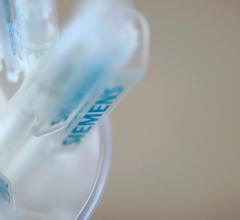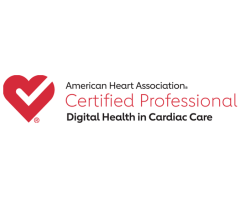
June 2, 2022 — According to the U.S. Food and Drug Administration (FDA), Atrium Medical Corporation is recalling the iCast Covered Stent System after receiving increased customer complaints about the separation of the balloon or catheter hub from the delivery system when the delivery system is removed from a person. This issue seems to occur most often when the stent system is used outside of the indications for use, for example to treat vascular conditions.
If a separation occurs and the balloon is not fully deflated before the device is removed from a person’s blood vessel, it may cause the procedure to take longer than expected, exposing the person to additional anesthesia and/or imaging chemicals known as contrast. The separated portion also may remain in the body after the delivery catheter is removed, potentially leading to vascular occlusion. Depending on the location of failure, occlusion may lead to amputation, embolism, loss of organ function, organ infarction, and tissue infarction.
There have been 75 complaints, nine injuries, and no deaths related to this device issue.
The FDA has identified this as a Class I recall, the most serious type of recall. Use of these devices may cause serious injuries, serious health consequences, or death.
According to an FDA spokesperson, "FDA’s regulatory definition of a medical device recall, 21 CFR 7.3(g), includes “removal or correction” of a device that FDA considers to be in violation of the law. Atrium’s medical device recall was a “correction” and the title of the company’s March 3, 2022 letter is Urgent Medical Device Correction, which accurately reflects the fact that this medical device recall was a correction."
The FDA spokesperson also stated that the FDA classified this action as a Class I recall, and referenced this link for additional information: https://www.fda.gov/medical-devices/medical-device-recalls/atrium-medical-corporation-recalls-icast-covered-stent-potential-balloon-or-catheter-hub-separation?utm_medium=email&utm_source=govdelivery.
Recalled Product
- Product Name: iCast Covered Stent
- Product Lot Numbers: See recall database entry
- Distribution Dates: December 31, 2018, to March 31, 2022
- Devices Recalled in the U.S.: 68,812
- Date Initiated by Firm: March 3, 2022
Device Use
The iCast Covered Stent System is a balloon expandable stent that can be delivered using a catheter to hold open and support the walls of the structures within the body. It is currently indicated for use in the United States as a stent to hold open the airways (tracheobronchial stent).
Reason for Recall
According to the FDA, Atrium Medical Corporation is recalling the iCast Covered Stent System after receiving increased customer complaints about the separation of the balloon or catheter hub from the delivery system when the delivery system is being removed from a person. This issue seems to occur most often when the stent system is used outside of the indications for use, for example to treat vascular conditions.
If a separation occurs and the balloon is not fully deflated before the device is removed from a person’s blood vessel, it may cause the procedure to take longer than expected, exposing the person to additional anesthesia and/or imaging chemicals known as contrast. The separated portion also may remain in the body after the delivery catheter is removed, potentially leading to vascular occlusion. Depending on the location of failure, occlusion may lead to amputation, embolism, loss of organ function, organ infarction, and tissue infarction.
There have been 75 complaints, nine injuries, and no deaths related to this device issue.
Who May be Affected
- Health care personnel who use the iCast Covered Stent System to treat vascular conditions in their patients, especially if the system is used for an off-label vascular use.
- People who have catheter-based vascular procedures using the iCast Covered Stent System.
What to Do
On March 3, 2022, Atrium Medical issued an Urgent Medical Device Correction letter to all customers.
Atrium instructed users to read the following deflation and withdrawal instructions prior to using this device:
- Deflate the balloon by pulling vacuum on the inflation device to its maximum volume and allow sufficient time for full deflation.
- Note: Deflation times may vary based on balloon size, catheter length, and inflation media used. Deflations may take longer with larger devices and higher concentrations of contrast.
- Visually verify full deflation of the balloon via fluoroscopy before attempting to withdraw the delivery system.
- Do not force withdrawal of the delivery system if resistance is encountered. Forcing withdrawal may result in damage to the delivery system, including separation of the balloon or catheter hub from the delivery catheter.
- If unable to fully deflate the balloon or resistance is encountered, remove the delivery system and introducer sheath as one unit.
- Note: it is recommended that the guidewire remain across the lesion until the procedure is completed.
- While maintaining guidewire position and negative pressure on the inflation device slowly withdraw the delivery catheter.
- Immediately stop using devices from affected lots.
Health professionals and patients are encouraged to report adverse events or side effects related to the use of these products to the FDA's MedWatch Safety Information and Adverse Event Reporting Program:
- Complete and submit the report online.
- Download form or call 1-800-332-1088 to request a reporting form, then complete and return to the address on form, or submit by fax to 1-800-FDA-0178.
For more information: www.fda.gov


 November 14, 2025
November 14, 2025 









